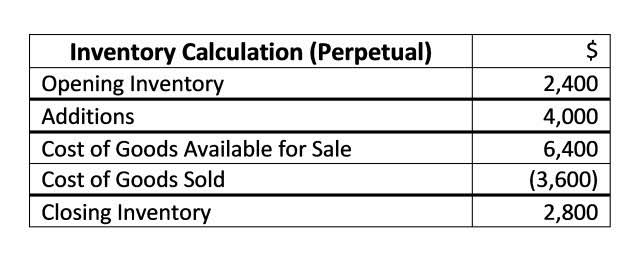Bookkeeping Services in USA Better Business Bureau Start with Trust ®

And a lack of professionalism can lead to losing your clients, referrals, and growth opportunities. Whether intentional or through neglect, violations of compliance regulations—like mishandling client funds—can lead to serious repercussions. Our tax services are designed to uncover opportunities for savings and investments, ensuring every dollar supports your journey towards building generational wealth. Consider asking the prospective accountant about their familiarity with employment tax regulations and whether they have worked with independent contractors common in the legal industry. Always maintain detailed records of every transaction into and out of the Interests on Lawyers Trust Accounts (IOLTA) to ensure compliance with regulatory requirements and to safeguard against potential penalties. Our bookkeepers are required to hold a Bachelor’s degree in Accounting or a related field, possess 2-3 years of Trust Law accounting experience, CPA training, and other criteria.
Final thoughts on accounting and bookkeeping best practices
Equally important is choosing the right accounting method and hiring a certified public accountant (CPA) to ensure compliance with state Bar Association rules and accurate financial reporting. If a law firm doesn’t do this right, they could get fined or even lose the right to work as lawyers. Using accounting software or a professional bookkeeping service can help you avoid those mistakes, as these solutions have error-reducing features and layers of checks and balances to ensure your numbers are correct. Small data entry errors like posting a transaction to the wrong account, transposing numbers, or misplacing a decimal point can lead to client funds not being properly accounted for and other financial reporting issues.
Accounting terms you need to know
- This process ensures that all funds are accurately tracked and properly allocated, reducing the risk of errors or discrepancies.
- Want to focus more on what you do best and stop worrying about whether or not your books are taken care of?
- Entering numbers manually often leads to mistakes and duplicated data entry in the accounting process.
- Whether working with new firms, firms looking to migrate their accounting systems, or firms that need to catch up on their financials, our team is here to help.
- We provide a report that shows what the actual revenue and expenses have been to date and project future months to help in making smart decisions as purchases are planned and changes occur.
Additionally, keep your financial records in check by syncing to a system for accounting for law firms like QuickBooks Online. Trust accounting is the practice of keeping client funds given in trust (including unearned fees paid as a retainer, settlement funds, court fees, or advanced costs) in a separate account from law firm operating funds. Additionally, ensure they are well-versed in trust accounting rules applicable to law firms, as this is a critical aspect of legal accounting that requires expertise and precision. Explore the top accounting software options for law firms and find out how they can streamline your financial management. Additionally, choosing a payment provider with high fees or not following trust accounting laws due to improper merchant processor selection can also result in unnecessary expenses for law firms. Instead, the interest accrued in IOLTA accounts is directed towards state-sponsored programs for law school scholarships and legal aid.
Using tech to make legal accounting easier

They can ensure that all client funds are appropriately allocated and tracked, preventing any potential mishandling or confusion. By accurately maintaining the chart of accounts, law firms can establish transparency and accountability in their financial dealings while protecting client trust. When you know exactly where your law firm’s money is, it’s easier to legal bookkeeping services identify what parts of your firm are successful and where you’re struggling, to make more informed and strategic business decisions. With the accrual method, you record revenue when it’s earned and expenses when they’re incurred—whether they’re paid right away or not. This creates a better matching of costs to the revenues earned in a given month or year.

It also includes more advanced tasks such as the preparation of yearly statements, required quarterly reporting and tax materials. While they seem similar at first glance, bookkeeping and accounting are two very different mediums. Bookkeeping serves as more of a preliminary function through the straightforward recording and organizing of financial information. Accounting takes that information and expands on it through analyzing and interpreting the data. It also aids in complying with regulatory requirements and protects the reputation of the firm by ensuring transparency and accountability in financial matters.

After you process your pay run using law firm accounting software, your accounts will be updated automatically. Legal accounting software with billing features (such as the ability to create or track invoices) or that connects with your practice management software helps simplify your workflows. Clio Accounting speaks to Clio Manage, enabling you to seamlessly track time, invoice, and collect payments, making Clio your single system of record. In contrast, legal bookkeepers focus on the day-to-day management of financial records. They make sure that every financial transaction is accurately recorded and that the firm’s financial operations run smoothly.
Differentiating Between Accounting and Bookkeeping for Law Firms
You can add as many accounts to your chart of accounts as you need to prepare accurate and informative financial statements, but don’t let your chart of accounts get too unwieldy. For example, the Clio Manage and Xero integration lets you apply a tax to an expense category in Clio, and that same tax amount will be applied to the client invoice in Xero. While this primarily applies to new law firms, ensuring that the basics are determined and set up correctly is critical.
With that said, it’s not always a simple or easy decision to choose new technology for your practice. From understanding what software benefits your law firm to choosing the best legal accounting software for law firms, read on to learn more about your options. When it comes to tax season and planning for the future, lawyers need to move beyond boxes of receipts and a spreadsheet for managing firm finances. Learn the basics of accounting and how to better manage your firm’s funds by utilizing legal accounting software in this guide.
- Setting a budget and consistently maintaining accurate bookkeeping are essential best practices for law firm accounting.
- Each month we reconcile all bank and credit card accounts to make sure all transactions are accounted for and no suspicious transactions have occurred.
- They often use the data prepared by bookkeepers to provide strategic financial advice and ensure that the firm’s finances are in line with legal and tax regulations.
- Good bookkeeping uses charts of accounts to organize all these money stories properly.
- Having too many accounts creates headaches later on, as it takes more time to review the books and increases your chances of making mistakes.
It allows for more meaningful financial management that isn’t influenced by the ups and downs of cash flow. When it comes to accounting for law firms, whether you handle it yourself or hire someone, your bookkeeping system must maintain a consistent schedule for carrying out bookkeeping tasks. Your best bet is likely to hire both a legal bookkeeper and a legal accountant. By establishing—and following—best practices for accounting for law firms like the examples below, you’ll be better able to help your firm stay on track.